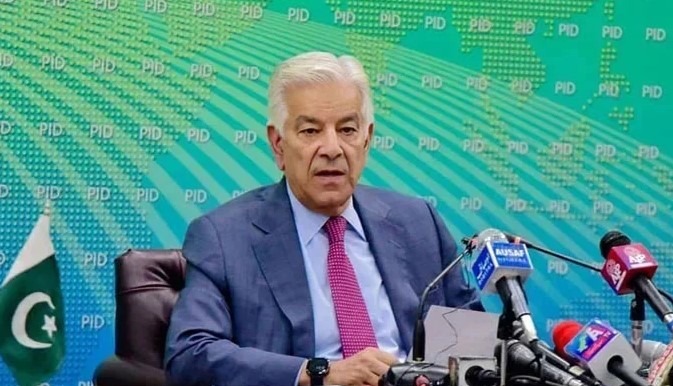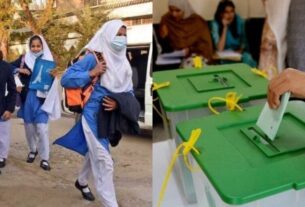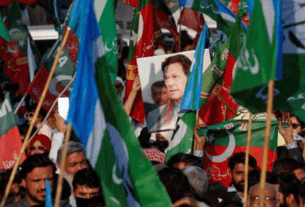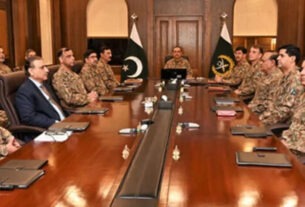پہلگام حملے پر پاکستان این ایس سی کا ردعمل: اسٹریٹجک اقدامات اور پالیسی ردعمل
قومی سلامتی کی ترقی - پاکستان نے ہندوستان کے غیر قانونی طور پر مقبوضہ جموں و کشمیر (IIOJK) میں پہلگام حملے کے بعد ہندوستان کی کارروائیوں پر اپنے ردعمل پر غور کرنے کے لئے قومی سلامتی کمیٹی (NSC) کا ایک اہم اجلاس طلب کیا ہے۔ وزیر دفاع خواجہ آصف نے اعلان کیا کہ این ایس سی بھارت کے بے بنیاد الزامات پر بات کرے گی اور تزویراتی پالیسی کا جواب بنائے گی۔ کمیٹی بھارت کے ان اقدامات کا بھی جائزہ لے گی جن میں سندھ طاس معاہدے کو معطل کرنا اور پاکستانی شہریوں کے اس کی سرزمین میں داخلے پر پابندی شامل ہے۔
پہلگام حملہ، جس میں افسوسناک طور پر کم از کم 26 افراد ہلاک اور 17 زخمی ہوئے، بھارت کے جارحانہ اقدامات کا نتیجہ ہے۔ پاکستان کے این ایس سی اجلاس کا مقصد ان کارروائیوں کو حل کرنا اور الزامات کے خلاف پاکستان کے مضبوط موقف پر زور دینا ہے۔
پہلگام حملے پر پالیسی ردعمل کی وضاحت کے لیے این ایس سی کا اجلاس
وزیر دفاع آصف نے تصدیق کی کہ وزیراعظم شہباز شریف کی زیر صدارت این ایس سی اجلاس میں بھارت کے الزامات پر توجہ مرکوز کی جائے گی اور پالیسی پر مبنی ردعمل کا تعین کیا جائے گا۔ انہوں نے اس بات پر زور دیا کہ بھارت یکطرفہ طور پر سندھ طاس معاہدے سے دستبردار نہیں ہو سکتا، کیونکہ اس میں نہ صرف بھارت اور پاکستان بلکہ عالمی بینک جیسے بین الاقوامی ادارے بھی شامل ہیں۔
انہوں نے متنبہ کیا کہ اندرونی سیاسی دباؤ کے تحت بھارت کی طرف سے اٹھائے گئے کسی بھی انتہائی اقدام کا پاکستان کی جانب سے سخت اور دفاعی جواب دیا جائے گا، ماضی کی اقساط جیسے ابھینندن کے واقعے کا حوالہ دیتے ہوئے یہ ملک کی فوجی تیاری کا ثبوت ہے۔
وزیر خارجہ نے پہلگام حملے پر پاکستان کے سخت موقف پر زور دیا۔
نائب وزیر اعظم اور وزیر خارجہ اسحاق ڈار نے بھارت کے اقدامات کی مذمت کرتے ہوئے انہیں "نامناسب اور سنجیدگی کا فقدان" قرار دیا۔ انہوں نے اس بات کا اعادہ کیا کہ NSC ہندوستان کے دعوؤں کا مقابلہ کرنے کے لیے ایک "مناسب جواب" تیار کرے گا، جس میں پہلگام حملے سے پاکستان کو جوڑنے والے ثبوت کی عدم موجودگی کو اجاگر کیا جائے گا۔
پاکستان نے دہشت گردی کی بھرپور مخالفت کا اعادہ کیا۔
آصف نے دہشت گردی کے خلاف پاکستان کے مضبوط مؤقف کا اعادہ کیا، ملک کے متاثرین اور دہشت گردی کے خلاف جنگ کے عزم کا اعادہ کیا۔ انہوں نے بغیر کسی مصدقہ ثبوت کے بے بنیاد الزامات لگانے پر بھارت کو تنقید کا نشانہ بنایا اور حملے کی غیر جانبدارانہ تحقیقات کی اہمیت پر زور دیا۔
پاکستان نے بھارت کے دہشت گردی میں ملوث ہونے کے الزامات کو مسترد کردیا۔
آصف نے بھارت پر بلوچستان میں دہشت گردی کی حمایت کرنے کا الزام بھی لگایا، ثبوتوں کے ساتھ یہ پتہ چلتا ہے کہ بھارت علیحدگی پسند تحریکوں کی مدد میں ملوث ہے۔ انہوں نے خطے میں بھارت کے بڑھتے ہوئے اثر و رسوخ اور پاکستان کو غیر مستحکم کرنے کی اس کی جاری کوششوں پر تشویش کا اظہار کیا۔
پہلگام حملے پر پاکستان این ایس سی کا ردعمل: مضبوط جوابی کارروائی
پاکستان نے پہلگام کے بعد بھارت کی جارحیت پر توجہ دینے کے لیے این ایس سی کو طلب کیا ہے۔ وزیر اعظم شہباز شریف کی زیر قیادت یہ اجلاس بھارت کے جھوٹے دعووں پر توجہ مرکوز کرے گا اور اس بات کو یقینی بنائے گا کہ پاکستان کا ردعمل سفارت کاری، ثبوت اور علاقائی استحکام پر مبنی ہو۔
پس منظر: کشمیر کی عسکریت پسندی اور سیاحت کی حکمت عملی
بھارت جموں و کشمیر میں بھاری فوجی موجودگی کو جاری رکھے ہوئے ہے اور اس خطے کو سیاحتی مقام کے طور پر فروغ دینے کی کوشش کر رہا ہے۔ 2024 میں، تقریباً 3.5 ملین سیاحوں نے کشمیر کا دورہ کیا، حالانکہ زیادہ تر گھریلو مسافر تھے، جو خطے میں ہندوستان کی جاری عسکریت پسندی کی عکاسی کرتے ہیں۔
پاکستان نے 2019 میں آرٹیکل 370 کو منسوخ کرنے کے ہندوستان کے فیصلے کو مسلسل چیلنج کیا ہے، جس کی وجہ سے خطے کو دو وفاق کے زیر کنٹرول علاقوں، جموں و کشمیر اور لداخ میں تقسیم کیا گیا۔
Also Read: Key Political Scandals Shaping 2024




